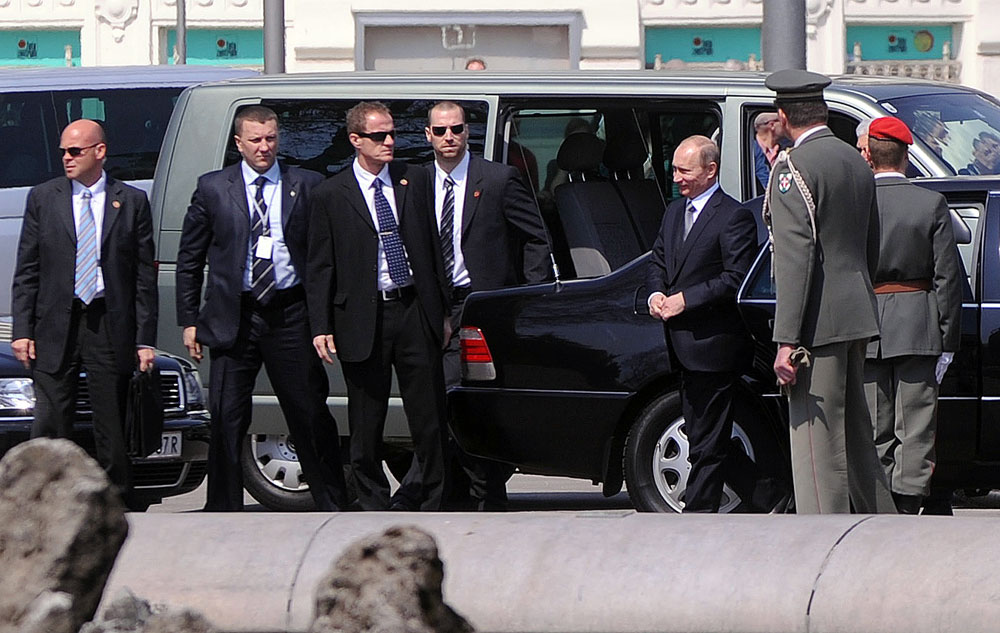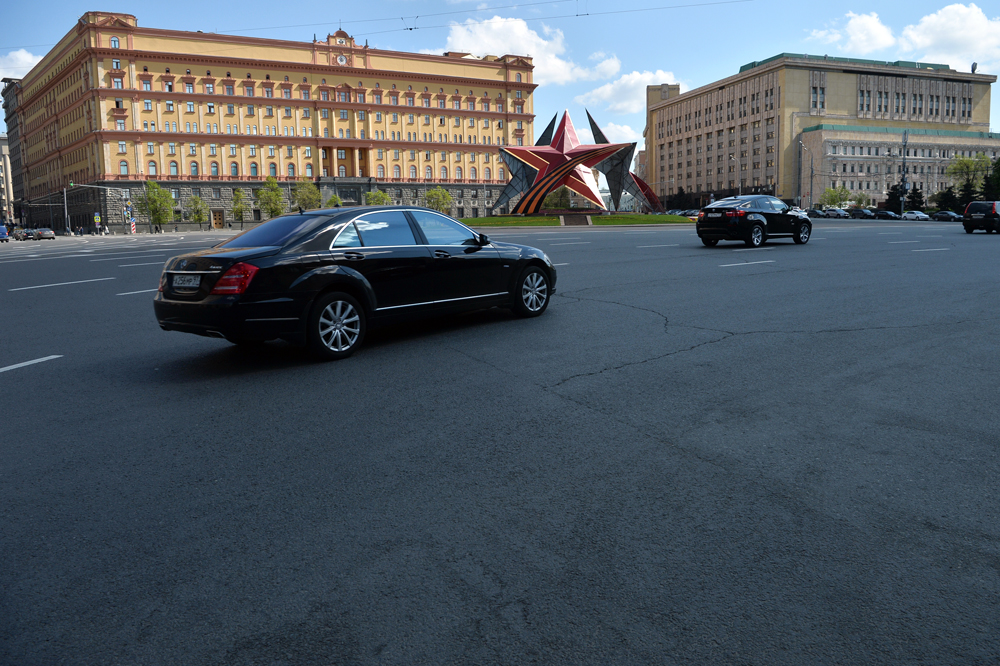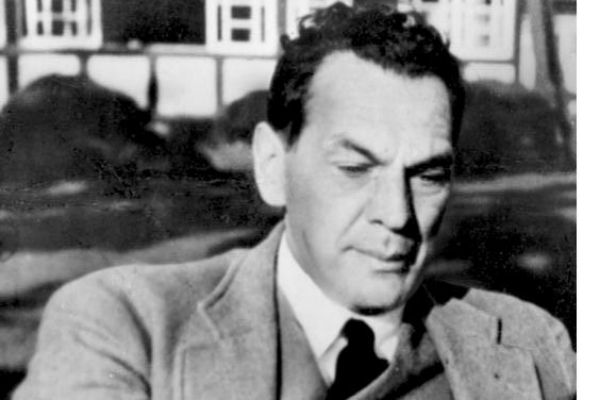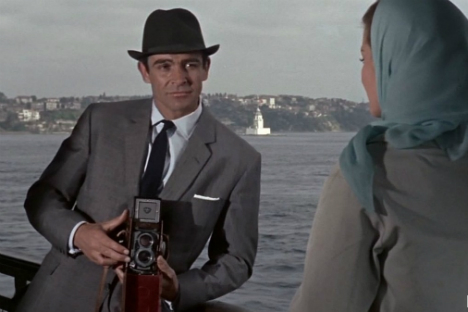Russia to resurrect Soviet-era Ministry of State Security
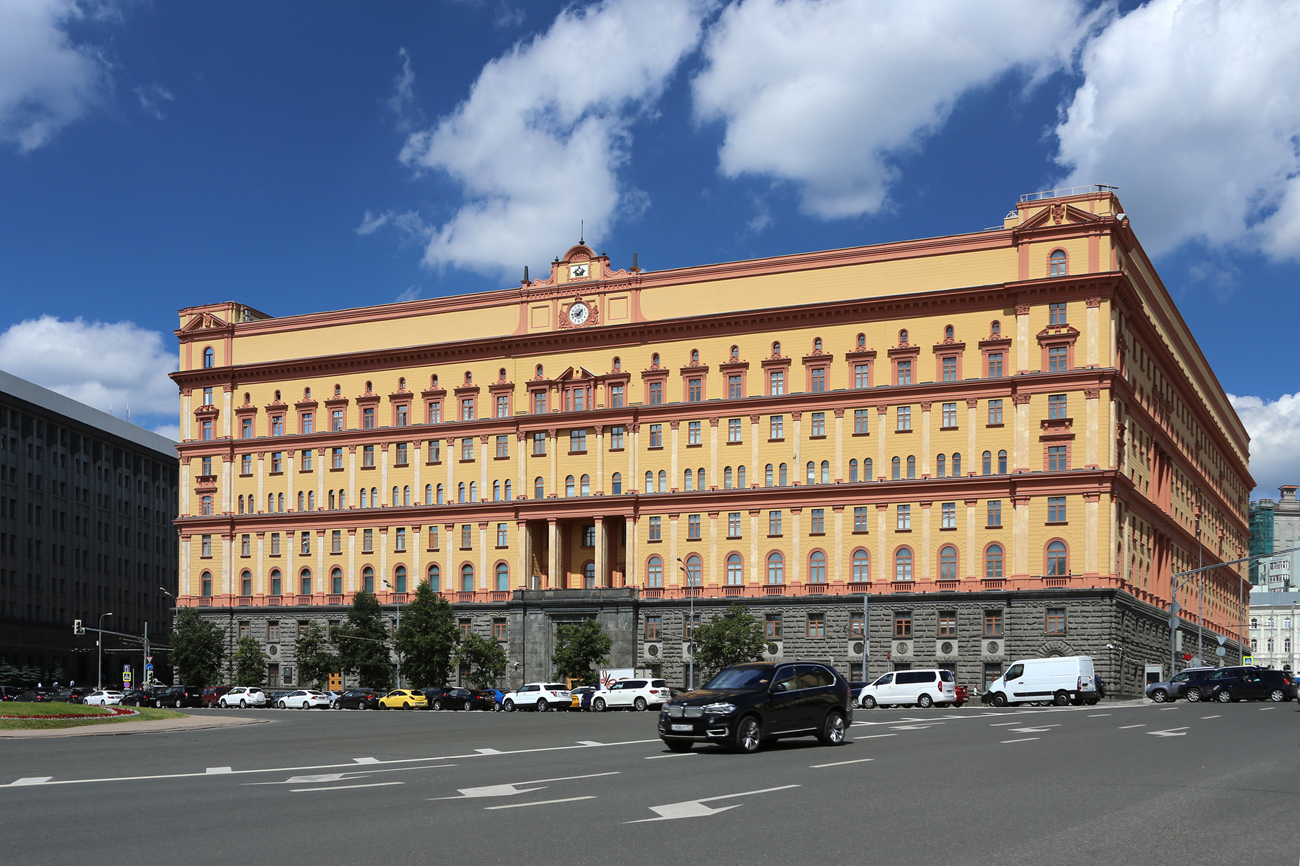
Russia is to establish a new intelligence agency under the aegis of the Federal Security Service (FSB) by resurrecting the Ministry of State Security, according to the mass media. Photo: The building of the Federal Security Service (FSB), formerly the State Security Committee (KGB) on Moscow's Lubyanskaya Square.
Lori/Legion-MediaAccording to one newspaper, Russia is to establish a new intelligence agency under the aegis of the Federal Security Service (FSB) by resurrecting the Ministry of State Security, or the MGB. The MGB, which, in addition to the FSB, will include two other intelligence agencies, should start operating before the 2018 presidential elections.
The Russian business daily Kommersant reports (in Russian) that the new ministry, which existed for several years in the Soviet period after the war, will be formed by combining the FSB with the Foreign Intelligence Service (SVR) and the majority of units of the Federal Protection Service (FSO), which oversees the protection of the country's top leaders.
The newly formed Ministry of State Security (MGB) will receive new features as well: The agency will be engaged in the highest-profile cases and as part of its duties will root out corruption in law enforcement bodies.
The possible new structure has been already likened to the powerful Soviet secret service – the KGB. As experts point out, media predictions about the merger of law enforcement agencies may well be about to come true. Russia has a tradition of creating powerful, centralized security structures.
As Arkady Murashov, who was the chief of the Moscow police in the early 1990s and is now a political analyst, noted in an interview with RBTH, "Historically, such a structure had always existed in Russia, except for the last 25 years; this is a familiar structure."
Murashov is echoed by Viktor Nechiporenko of the Faculty of National Security at the Russian Presidential Academy of National Economy and Public Administration, who said: "In pre-revolutionary and Soviet Russia, these services [which are now being united] were in the same hands."
The MGB in the USSR
First created in 1946, the MGB was responsible for intelligence, counterintelligence and the protection of the government. From its inception, the MGB was a rival to the Interior Ministry, having taken away some of the functions of the latter. The MGB was liquidated on the day of death of Joseph Stalin, on March 5, 1953.
However, a year after the elimination of the MGB, the State Security Committee was established, in which the main functions of the abolished ministry were concentrated. As Nechiporenko notes, although the Soviet secret services had some "peculiar tasks" (the KGB's functions included, among other things, the fight against anti-Soviet activities), they were successfully performed.
"The [Soviet] intelligence of that period, for example, was one of the best in the world," he said.
Eliminating conflict between security structures
However, Russian analysts have no consensus about the objectives that the authorities can pursue by uniting the agencies.
A possible motive could be the desire of the country's leadership to get better control over the work of the security services in order to avoid conflict between law enforcement officers.
As the head of the Analysis and Security think tank, Ruslan Milchenko, notes, recently, there have been frequent reports about conflicts between different security agencies – the Investigative Committee, the Prosecutor General's Office, the Interior Ministry and the FSB.
According to him, this situation is bad for the image of both the Russian Federation's executive authorities and the president. This state of affairs can be ended by enhancing the role of one of the agencies, in this case, the FSB, and greater centralization in decision-making, achieved through the merger of several structures.
Experts also believe that the Kremlin has a desire to place a law enforcement officer who is most trusted by the country's leadership in charge of the combined structure. This could enhance the manageability of the law enforcement system on the whole.
The MGB and civil liberties
However, analysts are skeptical about the assumption that the enlargement of the security services will seriously increase the efficiency of their work. Each of the structures to be combined – the FSB, the FSO and the SVR – has its own, very specific tasks, and will hardly carry them out better simply because the agencies have been merged.
As far as the fight against corruption among law enforcement officers is concerned, this new structure will require the transfer of authority from the Interior Ministry. There is not any definite information on this subject so far, analysts stress.
While critics might see the proposal as another step in Russia’s reconstruction of the totalitarian machinery of the Soviet Union, the experts polled by RBTH do not believe that the MGB has the potential to become a monstrous power structure that will further restrict civil liberties in Russia.
Nechiporenko points to the current “vertical” system of power in Russia and claims that this is different from previous top-down structures of government: In his view, by creating the new ministry, the state is interested primarily in maintaining strict control over law enforcement officers.
Read more: What will Moscow and Jakarta try to hide from the CIA?>>>
Subscribe to get the hand picked best stories every week
All rights reserved by Rossiyskaya Gazeta.
Subscribe
to our newsletter!
Get the week's best stories straight to your inbox
